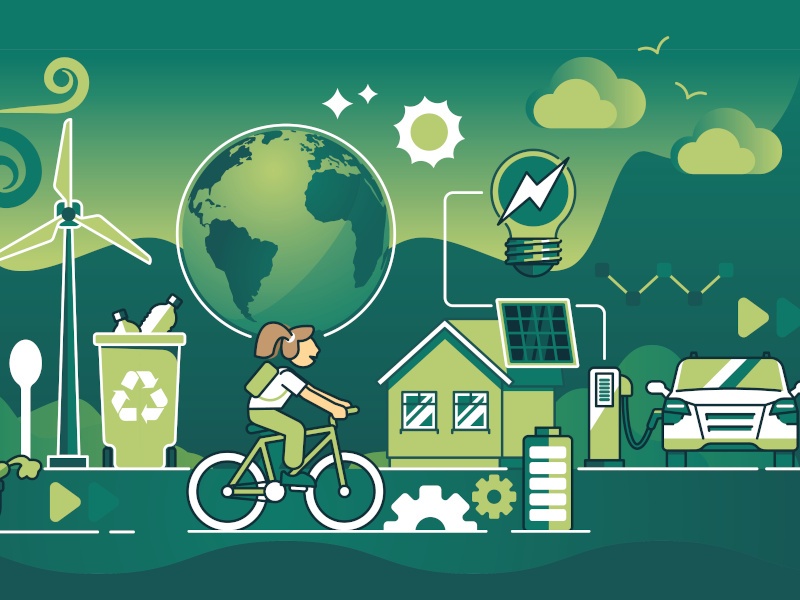
From behavioural science to shared mobility trials, research into the energy sector could help improve Ireland’s standing on a global scale.
The global energy crisis continues to put pressure on governments, policymakers and the general public. The Russian invasion of Ukraine put saw energy prices soar, while the need to reduce our emissions is only increasing the closer we get to 2030.
While many are familiar with the Sustainable Energy Authority of Ireland (SEAI) for its domestic energy grants, the company also does a lot around research and data analysis to accelerate the energy transition and help advise policymakers.
“We do a lot of work looking at the kind of policies and measures that are in play today,” Margie McCarthy told SiliconRepublic.com. “We study behaviours behind people and organisations, like what is either working or not working, and adopting some of those policies. We use all of that information then to model scenarios to project what our energy emissions will be in 2030, 2040, 2050.”
Unfortunately, Ireland has its work cut out for it in terms of energy emissions. The 2022 Energy Transition Readiness Index showed that Ireland has been ranked joint lowest of 13 European countries in terms of readiness to make a renewable energy transition.
And while the 2023 index showed an improvement, McCarthy said there is still work to be done. “We are the laggards at the moment in Europe in terms of renewable heat,” she said.
McCarthy, who is the director of research and policy insights at SEAI, said a lot of the work she and her team does is around “minding the gap” between where we are now in terms of emissions targets and where we need to be.
“An awful lot of solutions are in place already. So how do we upscale or accelerate their deployment? And then there are other solutions that aren’t as well developed? So how do we continue to develop them? And then the last piece is, how do we help people to accept and adopt them? Because that’s obviously the biggest barrier in lots of cases.”
The challenges around decarbonisation
Adoption is just one of many barriers when it comes to the energy transition. There is also the technological barrier of developing tech solutions that don’t yet exist or have not yet come to Ireland, that need careful consideration.
“[There are] things like carbon capture and storage in Ireland and really understanding the bio energy side, which could have a negative emission side. They’re things that we need to understand more in an Irish context,” she said.
“But there are other things where the solutions are quite ready and they’re there. They’re quite well developed and still in play in in other countries, and we need to understand how we can speed them up in terms of delivery in Ireland.”
But McCarthy said the reason the adoption challenge is such a unique struggle is because there are many nuances as to why some things are easier to adopt than others and so there’s a behavioural science piece that needs to come into play as well.
“There’s an awful lot out there [about heat pumps] that we have to debunk because if there is that one story of something not working in a home or in a building, it has a huge impact on everybody’s attitude towards heat pumps because it’s not a technology that’s widely deployed in Ireland yet,” she said.
“But an awful lot of experiences from other countries on top of the evidence show that the concerns that are raised around deployments are easily overcome or…are only an issue in certain homes or certain buildings. For most, it will be enough to be amazing technology that will really make homes more comfortable.
“One of the biggest concerns for us is there isn’t widespread knowledge and awareness and so people don’t necessarily have a warm and fuzzy feeling around it.”
Increasing energy projects
Despite the adoption barriers, SEAI strives to increase research and development in this area by funding projects that focus on the production, supply and use of energy. Last year, SEAI awarded €19m in funding to support more than 40 new energy research projects across Ireland.
One example of these projects is Tract, which aims to change mobility behaviour and produce results that demonstrate how emissions from transport can be reduced.
Another project, the Poolbeg project, which examines how to make use of curtailed electricity from offshore wind farms and from the waste-to-energy plant in Poolbeg, while utilising existing and planned energy infrastructure in the area.
“We’re looking at how to capture waste heat and how you maybe use some curtailed renewables that are going into the electricity system, use that instead of dissipating it, use it to store heat energy, so thermal storage,” said McCarthy.
“Another interesting one that came through the [research funding] programme is looking at how AI can be used to optimise the digitalisation of public transport and buses in particular.”
Find out how emerging tech trends are transforming tomorrow with our new podcast, Future Human: The Series. Listen now on Spotify, on Apple or wherever you get your podcasts.

